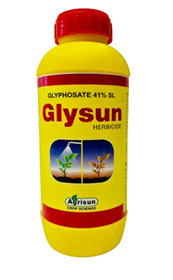Environment & Ecology
Context: Recently, the government has restricted use of Glyphosate and its derivatives, fearing health hazards and risk to human beings/animals. The new rules permit only pest control operators to apply glyphosate. Pest control operators are licensed to use deadly chemicals for eliminating pests like rodents.
About Glyphosate:

- Glyphosate is an herbicide applied to the leaves of plants to kill both broadleaf plants and grasses. The sodium salt form of glyphosate is used to regulate plant growth and ripen specific crops.
- Glyphosate and its formulations are widely registered and currently used in more than 160 countries, including the EU and the USA.
- Farmers across the globe have been using it for safe and effective weed control for over 40 years.
- Its usage became popular in the country after the illegal cultivation of Ht BT cotton
- It is mainly used in tea plantations to control the growth of unwanted plants. It is also used in non-crop areas to prevent plant growth.
Risk Factors of using Glyphosate:
- Glyphosate is being banned because of its potential link to cancer in humans, as well as potentially causing the death of important insects, such as bees.
- Biologists have sounded the alarm over the serious decline in insect populations that affect species diversity.
Source: The Hindu
Previous Year Questions
Q.1) With reference to polyethylene terephthalate, the use of which is so widespread in our daily lives, consider the following statements:
- Its fibres can be blended with wool and cotton fibres to reinforce their properties.
- Containers made of it can be used to store any alcoholic beverage.
- Bottles made of it can be recycled into other products.
- Articles made of it can be easily disposed of by incineration without causing greenhouse gas emissions.
Which of the statements given above are correct? (2022)
- 1 and 3
- 2 and 4
- 1 and 4
- 2 and 3
Q.2) Which of the following are the reasons/factors for exposure to benzene pollution? (2020)
- Automobile exhaust
- Tobacco smoke
- Wood burning
- Using varnished wooden furniture
- Using products made of polyurethane
Select the correct answer using the code given below:
- 1, 2 and 3 only
- 2 and 4 only
- 1, 3 and 4 only
- 1, 2, 3, 4 and 5











